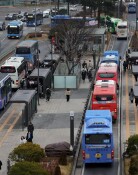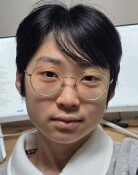[Opinion] Education That Breeds `Delinquents`
[Opinion] Education That Breeds `Delinquents`
Posted December. 13, 2001 09:25,
There is a sector of society that is making thunderous raucous like you hear on the cheering stands of racetracks – it is education. If it were any other problem, it would have incited a riot, but since the problem touches on my own child, every family who has kids preparing for college has to submit to and suffer whatever changes take place.
Nearly half a century has passed since the government has taken direct control of the education system in order to build a modern nation. The intent was to make a direct link between the people and the state in order to form citizens rather than human beings as in the old `sodang` system. Although the modern education system has made it difficult for families for some time now, the degree of the difficulty and pain has increased each year under the present administration. The administration justifies this as a necessary pain for a better education system. This, however, is mere rhetoric. Almost everyone inside or outside the education system agrees that the administration has completely ruined the system.
Why? Everyone admits that the principal problem with the education system is the college entrance system. Yet, the attempt to change things by simply fixing up the testing process will bear little fruit and only wastes an immense amount of money. The phenomenon of `education immigration` is a sign of the times. For the President to say, moreover, that he will create a free education system and for policymakers to trample on the dignity of educators is almost like advocating educational chaos. The destruction of school education is an inevitable consequence of this.
We can no longer expect the present administration to fix the education problem. We will have to reflect on the fact that we will only reach a turning point until the current state of affairs reaches its conclusion.
The most important thing to consider is the need for dividing the education system into foundational and professional sectors. The most important question for any nation with an interest in education is how to nurture the elite members of society endowed with natural talent. These fall in the foundational sector. The biggest weakness of the current Korean education system is the frailty of the foundational division. In the long-term, this coincides with the issue of the nation`s power. Generally speaking, the order is philosophy – science – technology – economy – military.
If we take this order as a precondition, the recent crisis in the humanities and social sciences, and the foundational natural sciences is not something to glide over. There are over 200 four-year colleges whose curriculum is designed like a shopping mall. Yet, everyone knows that the number of schools has no bearing on nurturing foundational human resources.
The majority of students plan to seek employment. There are a plethora of two-year colleges, which formerly were called vocational colleges, but these schools also need to be reorganized. College education has been public for quite some time now. Accordingly, there is no reason to hold back from granting bachelor`s degrees to vocational college graduates and giving them an inferiority complex. Yet, there is a condition for doing this. In an industrial society, vocational training usually requires four to five years of rigorous training. The content of education must also be substantially increased. Playground education must be sublated for those with greater capacities.
If this basic philosophy is taken as the precondition, the current education system, which is designed to mass-produce delinquent human beings, will inevitably undergo reorganization. There is no other way if we want to address the demand for quantity while raising the quality. It will be beneficial to reform existing colleges with this approach and only this will improve the problem of unemployed overqualified personnel.
Although many are pointing out the problem of overqualified people not getting employment, in actuality they are underqualified. Furthermore, education reform has to take into consideration whether to keep or abolish the outdated examination system.
The current administration promoted the head of a dissolved department to vice premier because it claims to value education and human resources. Yet, the administration continues to destroy the education system without much material for human resources. The next administration must not make the same kind of mistake.
Roh Jae-Bong (Former Prime Minister)







